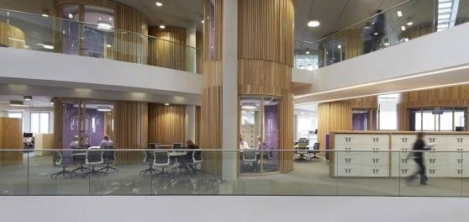December 23, 2014
Government report highlights radical potential of Internet of Things
 According to a report published this week by the Government’s Chief Scientific Advisor, by taking the lead in developing the internet of things, the UK could transform the way the country lives and deliver huge benefits to the economy. The internet of things – in which digital networks are connecting everyday objects so data can be shared – creates enormous opportunities for both the private sector and government. It also has the potential to be applied in many areas of everyday life, transforming the way we use energy, how we travel and maintain a healthy lifestyle. The number of connected devices could potentially reach up to 100 billion globally by 2020 and industry estimates also suggest that these technologies could have a global value of nearly £10 trillion by then.
According to a report published this week by the Government’s Chief Scientific Advisor, by taking the lead in developing the internet of things, the UK could transform the way the country lives and deliver huge benefits to the economy. The internet of things – in which digital networks are connecting everyday objects so data can be shared – creates enormous opportunities for both the private sector and government. It also has the potential to be applied in many areas of everyday life, transforming the way we use energy, how we travel and maintain a healthy lifestyle. The number of connected devices could potentially reach up to 100 billion globally by 2020 and industry estimates also suggest that these technologies could have a global value of nearly £10 trillion by then.

























December 3, 2014
It’s no surprise a third of homeworkers choose to work in their pyjamas
by Sara Bean • Comment, Facilities management, Flexible working, News, Technology, Workplace